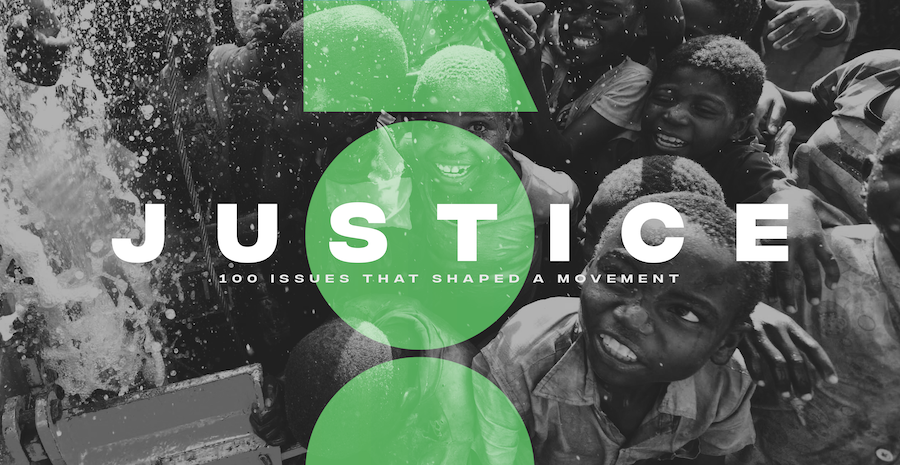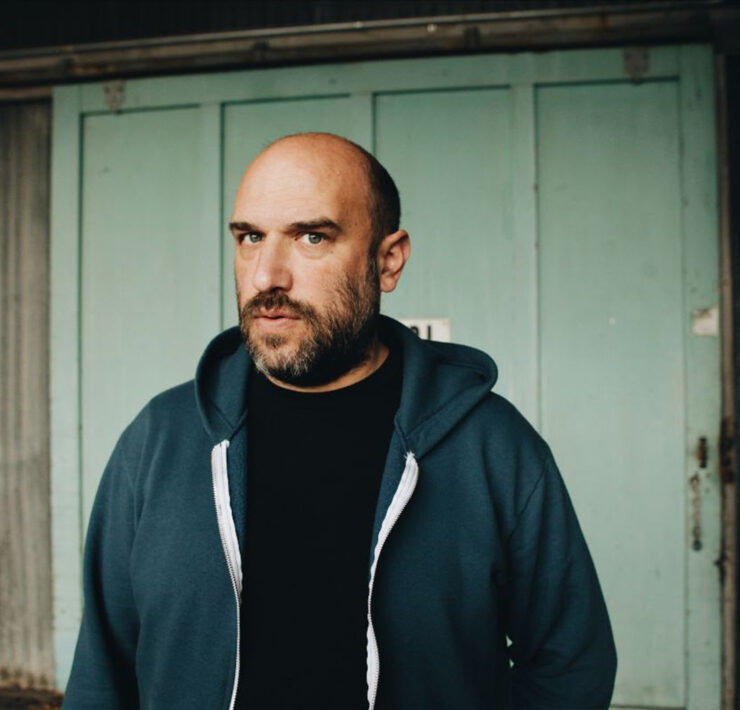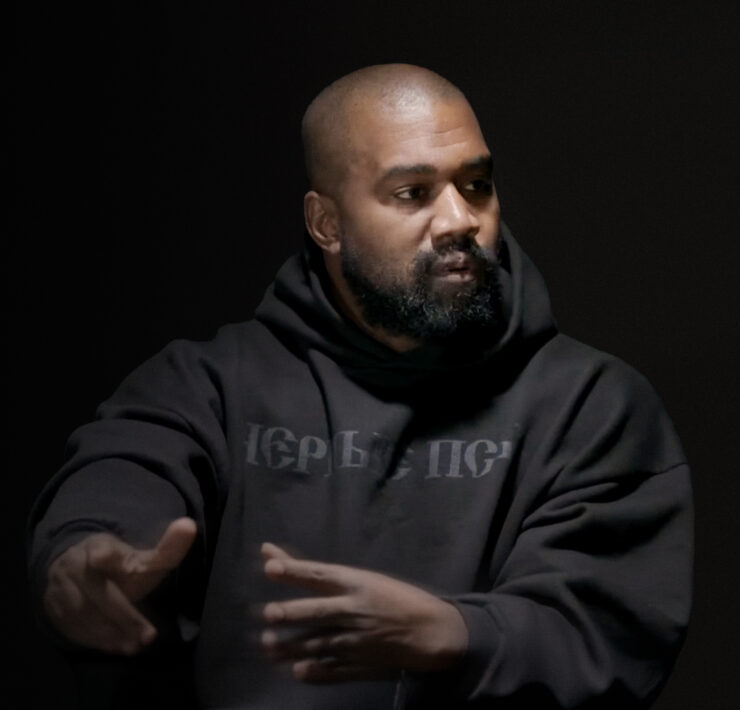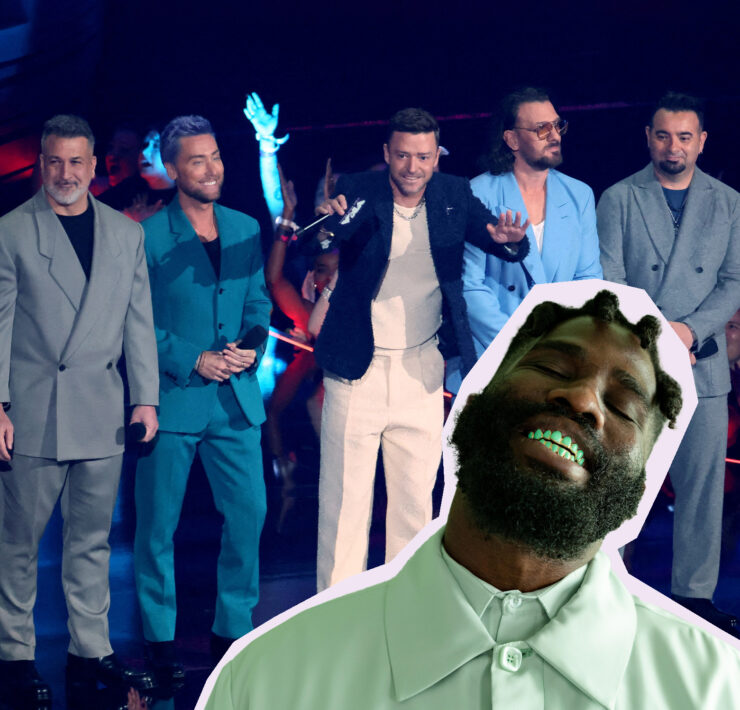
With all the worship music out there, it can be tempting to lump it all into the same box. But Maverick City Music easily resists any such labels, bursting through expectations and convention with propulsive, dynamic creativity that seems to fuse both the music and the lyrics with a spark that really makes you sit up and take notice. The group’s most recent release, Maverick City, Vol. 3, Pt 1, is a testament to just how enriching and gripping worship can be when songwriters are given a space to thrive and explore their gifts. Seriously, we hear a lot of great worship music at RELEVANT — but this album still stuck out.
RELEVANT sat down with Maverick City’s Chandler Moore and Naomi Raine to talk about how they went about creating such a space and what other churches can learn from how Maverick operates. This conversation has been lightly edited for length and clarity.
OK, what is Maverick City Music?
NAOMI: We’re a group of writers and songwriters and we come together to write music. We get together and write music and it’s dope. Tony always says that he had been in a bunch of different groups but there were never really many black people, never really many women. And then even in the groups that he was in it was almost like people were struggling to feel like they could be real and write from a place of real passion. That was his motivating factor in bringing us together.
So you had to be intentional about creating a space where a more diverse group of people could come together to write music.
NAOMI: But can I say this? What I love is that is, yes, there’s a level of intention behind it. But it’s still low key. I feel like that’s what helps it feel authentic. As much as this blesses people, it blessed us first because it was a place I could be myself. And just because I’m a black female singer, it doesn’t mean I have to be sound like Mahalia Jackson. What people don’t realize that even the gospel community there is a distinction made between the way you sing. Whether you sing gospel enough or if you have enough grit or growl in your voice. I have more of a pure, straight tone kind of voice. And then it’s like, OK, well you sound like you belong like in the CCM world. There’s a lot of that. But when we came on with Maverick, it was just us worshiping. We could be ourselves.
What sort of training goes on at these camps? Seems like writing worship music would be this big, spiritual experience. Is there a light from Heaven?
CHANDLER: If I’m being straight, I think there are very real moments when we’re writing and it feels like the light from hell is on. It’s not as easy as you would think it would be, you know what I’m saying? You’re writing language basically that the Church is going to sing to God. That responsibility that can be so heavy and trying to be creative enough, but not so creative that you’re going against who God is and His character. Because a lot of times the temptation can be, hey, we heard this so many times — let’s try to be a little racy. But you lose the authentic content of the purpose of what we’re writing. So it can be very gritty sometimes.
You’re saying sometimes we’ve sung about God’s love so much that it can feel a little dry so you want to get more creative. How do you make sure you stay grounded? Are there checks and balances?
CHANDLER: I think the checks and balances is the Word of God. I mean, we try to be theologically correct. But also, there are scriptures and psalms where David is like, hey God, why do you hate me? I feel like God gives you the freedom to express very real emotion. Jesus was human. We have not had any heartbreak He doesn’t understand.
NAOMI: Also, every church doesn’t believe the same thing. The other day I wrote a song with some people from Upper Room and they’re more free and open with certain things. We’re talking about the Holy Spirit — they’re open, receptive. There are some churches that really want to hear about the Holy Bible. There’s a little bit of a difference. And so I think sometimes depending on where you’re coming from in that specific rite, you might say, hey, how universal in terms of for the church, do we want this song to be? So a song like “How Great is our God”, every single church can sing that. But then a song like “Holy Spirit” or “Reckless Love”, everybody can’t sing it because of their theology. And I think that’s OK.
There are very real silos in the worship music community that exist around things like doctrine, genre and race. Why do you think those are there and how are you all overcoming them?
NAOMI: Our name is Maverick City Music. So we’re already coming out like rebels with a cause. We’re already saying, hey, this is not what you expected. This is not what you’re used to, but this is what we are. And I think that in itself speaks for itself. I don’t think that we’ve purposely sat down and said, we’re going to hatch a plan. It’s not like that.
CHANDLER: To be a little controversial, the industry mindset is yo, we have to have categories because if we don’t, people are not going to know what we want to present to them. So even one of the first records, [Billboard] tried to put it out as a Gospel record because I was black and I was on it. And we were like, why is this gospel? Why do you categorize this as gospel? And it’s not even anywhere along gospel lines.
So it’s really having those hard conversations. I think the way we do is having those hard conversations with people, with the industry, like, yo, I know this is probably how you been doing it. This is what you feel, but this is not what this is. And the reason I love Maverick is because, the way I call it, it’s so unmanicured. You don’t know what to do with it. You can’t put it in a box. It is what it is. I think what it’s doing is challenging those lines. Like, hey, just because a black guy is leading a CCM song. What do we do? It sucks that we have to have that conversation, but it’s just a real, real thing that I feel like the Lord is using Maverick to highlight: Is His music about color or is music about what you’re saying?
It seems like a lot of organizations — including Christian ones — consider diversity to be the cherry on top. You get the program figured out, and then you sprinkle a little representation for the cameras. But you’re saying it needs to start deeper than that.
NAOMI: It’s more about allowing what is in your culture or what is in your city to be present in your church. Let it look like the place that you’re at. And that’s really what, when the first church was started, it was the Corinthian Church, the Roman church — it was based on the city. And so whatever the city looked like, that’s what the church looked like. We live in America. So our country is very compartmentalized. It’s very segmented and segregated. And I think that our churches will kind of look like that.
But I do think that there’s more than just black and white, when it comes to culture. There’s older generations, there’s younger, there are many ways for our culture to be diverse without it being a color thing. Because I think it’s weird to just be like: let’s just bring in black people. But if you become intentional about engaging younger culture in your church, you will start to find that some color creeps in and some different language and different clothing and dress type. It’s just going to happen.
CHANDLER: I know a lot of churches who have diverse audience and congregation, but not diverse leadership. I think that’s what you’re after. Honestly, sit down and try to have a conversation with somebody to looks different. Let’s start there. Do you even understand their background? And I think again, that’s a lot of what Maverick is. Like, hey, how tough is it for not just a black person in worship or a black person in the nation, but a Hispanic person? I want to know, what is your background like? So start there. Have a conversation with someone that you don’t know and build authentic relationship.
Do you feel extra pressure to be excellent then? If you’re going to break the mold, people are going to expect big things.
NAOMI: I think ultimately at the end of the day, this is God’s church. And we want Him to have His way and that doesn’t mean we’re not responsible or we don’t operate in excellence. I think we’ve trained enough vocally. We train, we put the work into writing and doing all of that and now, even playing the musicians are trained musicians, and now we come, we gather and bring it together and give it to Him. It’s like an offering. And hopefully He breathes on it and uses it.
I really felt that with ‘Man of Your Word.’ That’s my favorite song on the album. I’ve never heard a worship song quite like it.
NAOMI: That’s a part of what Maverick is. You didn’t see this one coming. That’s what I’m saying. We’re writers at the end of the day. We don’t just write one type of music. And I think it was a dope moment where you got to really see more of what gets written in these sessions than just, I don’t want to say just a worship song but …it’s just a whole lot. A whole lot.
Maverick City, Vol 3 Part 1 is available now.























